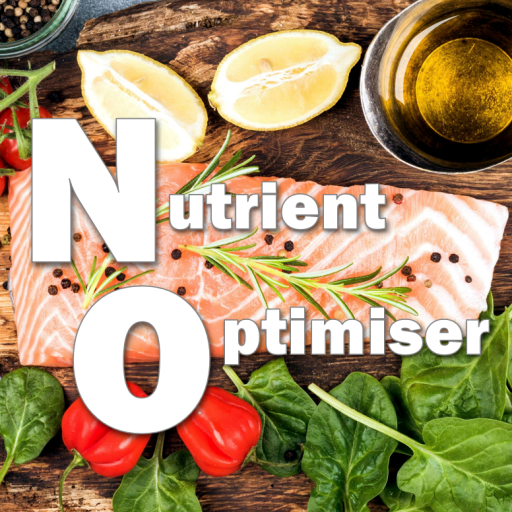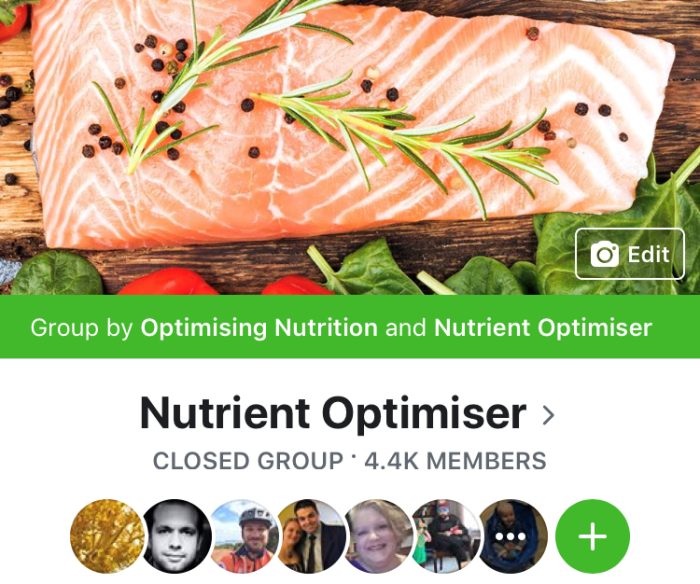Lots of people track calories and macros. MyFitnessPal alone has more than 165 million users. Unfortunately, most of them fail in the long-term. Without changing the quality of your food, your appetite will usually win out in the long run. 
Cronometer tracks your micronutrients. But what do you do with all that data? How do you know which foods you should be eating more of to improve your nutrition?
You could load up on handfuls of supplements, but will probably just end up in the toilet due to poor absorption or because your body does not need the nutrients that you decided to buy in a bottle.
What you really need to know is which foods will provide you with the nutrients that you are currently lacking.
Each person has a unique micronutrient fingerprint based on their current eating habits.
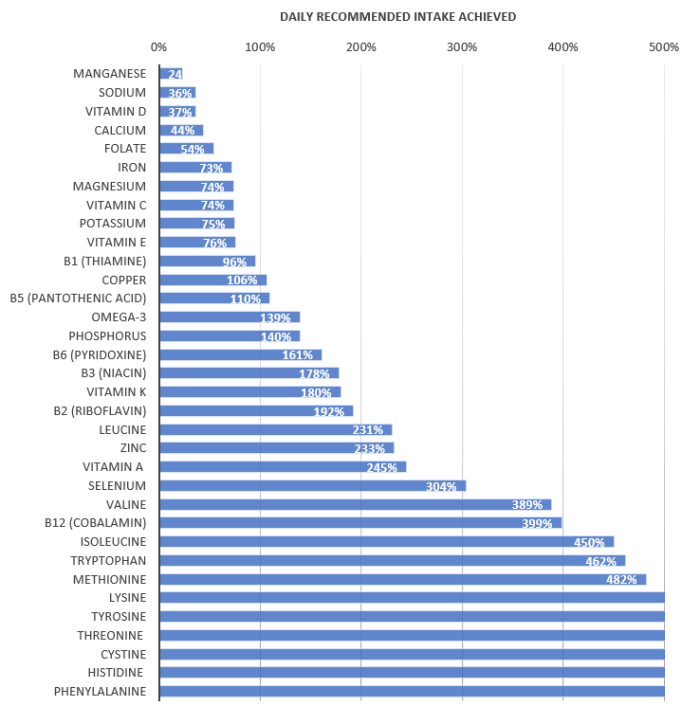
And, each individual has a unique short list of foods that will provide a targeted nutritional solution towards filling in any nutrient gaps.
Which foods are optimal for YOU!
There is an endless debate about the right macronutrient balance (i.e. carbs, fat and protein).
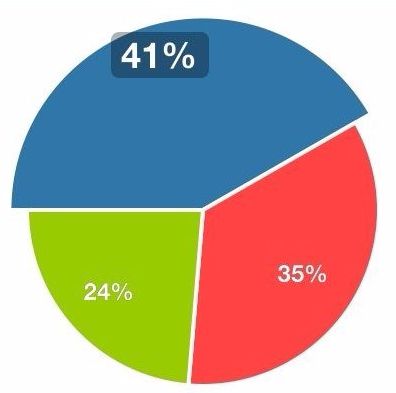
Meanwhile, others promote the virtues of a particular nutrient, supplement or superfood.

But you may be wasting your money if you don’t know which nutrients you need.
Different people believe you should eat plant-based, go paleo, low carb, gluten-free, vegan or keto. But regardless of your approach, you can still find a way to eat nutrient poor hyper-palatable foods that will ensure you don’t achieve your goals.
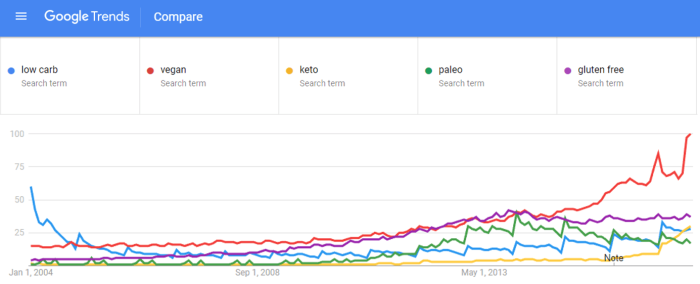
Trends and diet fads come and go. However, the diet and macronutrient wars become irrelevant once you balance your diet at a micronutrient level with whole foods.
The chart below shows the essential nutrients that you would get if you at just a little bit of all of the eight thousand foods in the USDA food database. The essential nutrients at the bottom of the chart are easy to obtain in adequate quantities. However, it’s the nutrients at the top of the chart that we need to pay attention to.
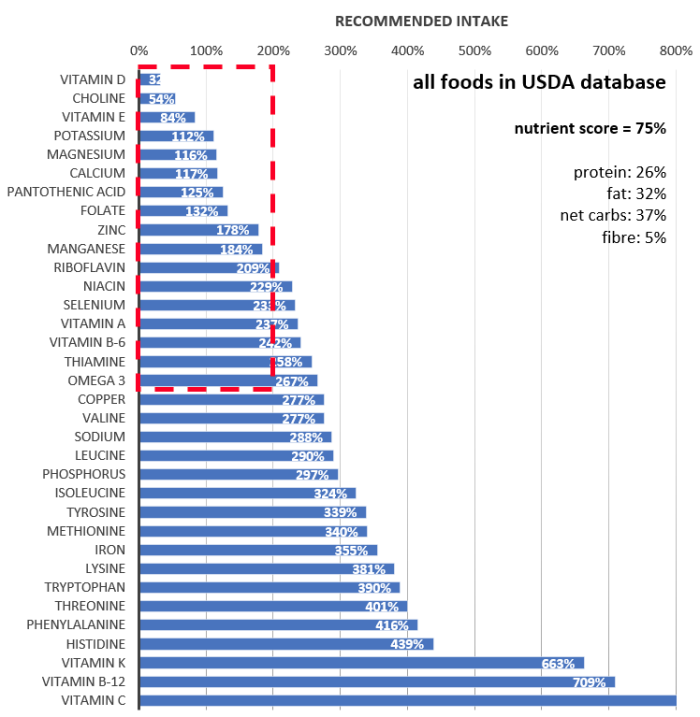
The chart below shows the nutrients we would get if we ate the most nutrient poor, energy-dense foods available. These foods are largely ’empty calories’ that will leave you craving nutrients.
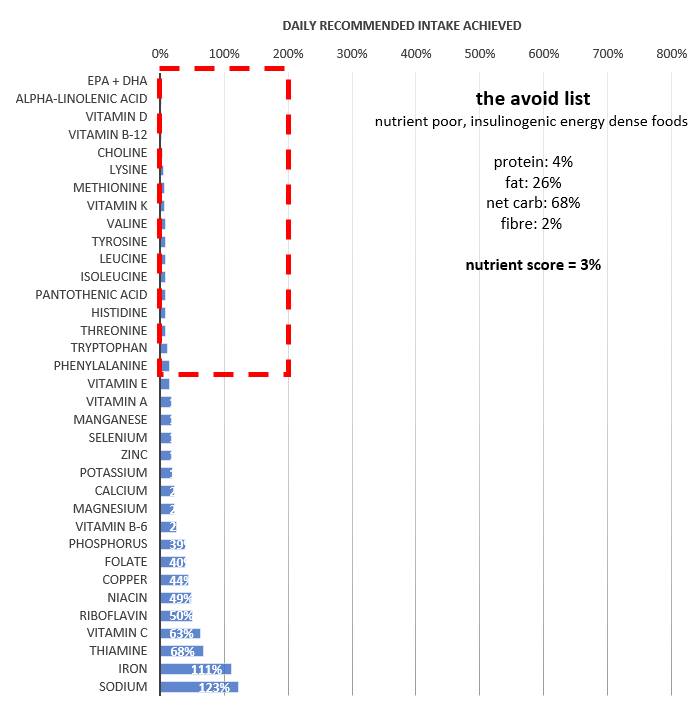
Meanwhile, the chart below shows the micronutrients that you can obtain from your diet if you prioritised the foods that contain more of the nutrients that are typically harder to find in our food system (red bars).
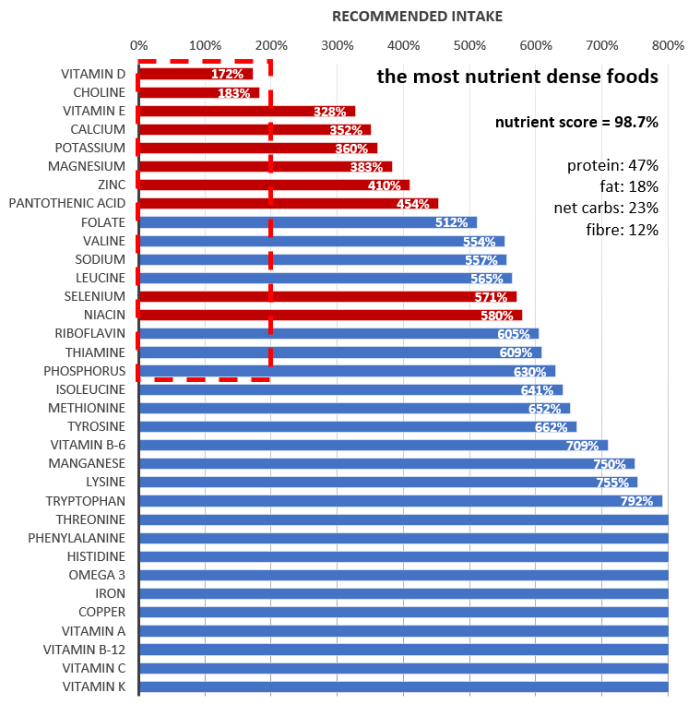
Your food choices make a massive difference to the nutritional quality of your diet, your cravings, satiety, hunger, and ultimately your health, weight and longevity.
The Nutrient Optimiser
The Nutrient Optimiser is the only tool that will tell you which foods will help you balance your diet at a micronutrient level. The Nutrient Optimiser will help you prioritise your limited funds and calories.
While the nutrient density is central to the Nutrient Optimiser algorithm, we also consider insulin load and satiety to help you normalise blood sugars and manage your energy intake without having to count calories.
The Nutrient Optimiser is the only tool that will tell YOU:
- which foods in YOUR cupboard you should eat more often,
- which ones YOU should throw out, and
- which new foods YOU should consider trying.
What will my report contain?
Your personalised Nutrient Optimiser report contains:
- a detailed discussion of your goals and priorities based on your blood sugars, % body fat, current food intake, personal preferences and any other health conditions;
- your micronutrient fingerprint based on your current diet (logged in Cronometer) which highlights the essential nutrients that you should consider boosting;
- an analysis of your key micronutrient ratios, including:
- omega 3:omega 6,
- zinc:copper,
- potassium:sodium,
- calcium:magnesium, and
- calcium:phosphorus;
- your recommended nutrients to prioritise;
- shortlist of your current foods that you should be eating more of;
- shortlist of foods you should be eating less of;
- optimised food lists to tailored to your various goals (e.g. weight loss, pre or post workout and day to day maintenance);
- your current macronutrient ratios (in grams, gram/lean body mass and % calories);
- you protein adequacy in view of your current goals (e.g. therapeutic ketosis, weight loss or bodybuilding);
- your current insulin load and insulinogenic calories;
- your target calories to achieve your desired rate of weight loss or weight gain based on your recent energy intake and rate of weight loss;
- your nutrient density on a day to day basis, and
- an analysis of your most nutrient dense day and the least nutrient-dense day the help you reflect on and refine your current habits.
Join the community
Knowledge is power, but many people require support and accountability to succeed in the long term, so we are building a community of like-minded people who are on a similar journey.
Join the Nutrient Optimiser Facebook Group to your journey with others. Learn from others who have gone before so you can give back and support others on their journey in the long term.
Growing with you
Importantly, the Nutrient Optimiser will adapt with you as you progress towards optimal.
- If you are managing diabetes, insulin resistance or a condition that could benefit from therapeutic ketosis (such as Alzheimers, dementia, epilepsy or cancer), the Nutrient Optimiser will train you to reduce the insulin load of your diet and optimise your blood glucose levels, insulin and ketone levels.
- If you still want to lose weight, the Nutrient Optimiser algorithm will help you fine-tune the energy density of your diet.
- If all goes well, down the road, the Nutrient Optimiser can support you as you start to lift heavy or develop as an endurance athlete who requires a different approach.
- For those just aiming for health and longevity, the Nutrient Optimiser will help you get the nutrients you need without excessive amounts of energy.
Where to from here?
- Dip your toe in the water with our free report that will give you your target macronutrients, optimal foods and optimal meals to suit your current goals.
- Read the Nutrient Optimiser frequently asked questions for more detail.
- Check out the leaderboard to see what it takes to make it to the top.
- Watch and listen over at the media page to presentations and interviews explaining the Nutrient Optimiser.
- Join the Nutrient Optimiser Facebook Group share the journey.
- Check out Optimising Nutrition that has formed the basis of the Nutrient Optimiser multi-criteria algorithm.
